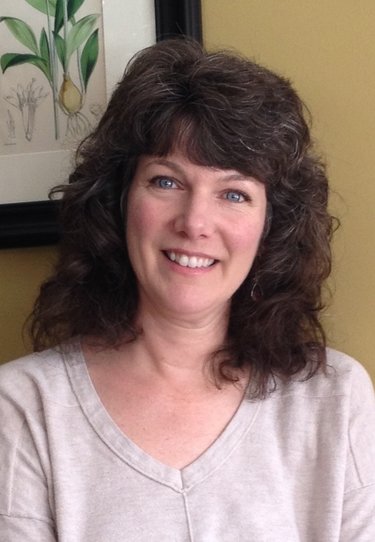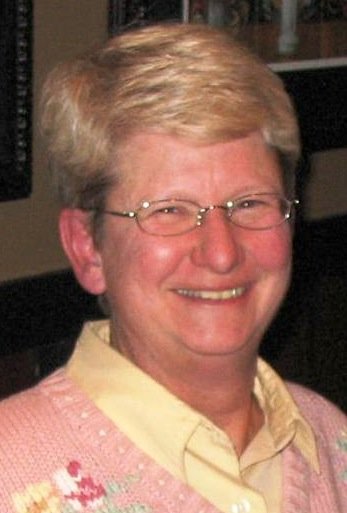Candidates both value Altamont's independence
ALTAMONT — Cathy Glass, a newcomer to politics, and incumbent Christine Marshall are running in an uncontested election for village trustee on March 18.
Glass, 48, a homemaker, said she's running as a long-time resident who hopes to “make a little bit of a difference.”
Marshall, 67, a retired state Civil Service administrator, feels that she offers valuable experience as a two-term trustee.
The candidates agree on consolidation — they’re against it. Both also see the need for a village police force, and both would like to upgrade the village’s aging infrastructure, cost permitting.
Marshall, of 11 Whipple Way, has lived in Altamont since 1987. She said she is proud of the work that the board and the mayor have done during her tenure. “I think we’ve accomplished a lot of good things, and I decided that there was still some good work to be done on my part,” she said.
Marshall also noted that she has eight years’ experience on the board, and that it “really does take a while to get familiar and comfortable with the operations of the village.” She said that having “a good handle on things” was another factor in her decision to run again, since that “makes it a little easier to carry on.”
Glass, who lives at 100 Bozenkill Road, has served since 2011 on the village’s planning board. She and her husband were married in the village. They bought property in 1985, and in 1986 built the house where they have now lived for 28 years. They raised two children who attended Altamont Elementary and went on to Guilderland’s middle school and high school. Glass’s mother lives in the village as well.
Glass is running to fill the seat vacated by William Aylward, who resigned effective at the end of his current term, which is through the end of March. (See related story.)
Glass said that she decided to run because she has the opportunity now to be able to do it, since her children — a daughter, age 12 and son, age 15 — are a little older. “It’s a pretty special place,” Glass said of the village. “So hopefully I can make a little bit of a difference.”
Goals
Marshall told The Enterprise that one of the things that the board accomplished in the last couple of years was a major upgrade to the village’s wastewater treatment plant, making the equipment more state-of-the-art and bringing it into compliance with regulations set by the state’s Department of Environmental Conservation.
“The upgrade was completed over a year ago,” Marshall said, “but there are still some kinks to be worked out with the new equipment and having the plant operate smoothly and efficiently.” Marshall said that she would like to devote time and energy to seeing that project through to completion.
Marshall also spoke about a study done several years ago for a pedestrian-and-bicycle master plan for the village. The village has implemented some of the recommendations already, but she hopes to concentrate during her next term on implementing some of the others, “to make the village more pedestrian- and bicycle-friendly.”
She said that the village received a grant to expand the sidewalks — one aspect of implementing this plan — several years ago, and has been working on that every year. The village has also recently gotten some more funds released, and so should be able to continue working on the sidewalks this year. “But that is just one aspect of it,” Marshall said. “There are a lot of people in the village who clearly like to walk and bike,” she said, making this plan a priority for her.
Glass said that she does not yet have a firm sense of her goals as a trustee. “I know the budget is coming up,” she said, “but I don’t have any specific goals.” She added that the current board has been “doing a great job,” and she looks forward to “just kind of getting my feet in there and seeing what’s going on, really.”
Consolidation
The governor is pushing for villages across the state to consolidate with surrounding towns. The candidates were asked how much money would be saved if Altamont consolidated with the surrounding town of Guilderland and if the consolidated government would be more efficient as well as what might be lost.
Glass said that she does not think it would be beneficial for Altamont “to lose our village status.”
She said, “It is wonderful being a part of the town of Guilderland, but I think that being a village and having our own government allows us to have a little more control over what goes on in our village, and to keep the small-town feel of our village.”
Marshall said that, rather than “consolidation,” the more accurate term would be “abolishment.” Her view is that any potential cost savings — which would probably not even be “that great” — would not be worth it.
“I have not done a cost analysis of that, but I don’t really think it would be that great, and I think we would lose a lot,” Marshall said. The village now has its own police and public works departments, and they provide “very close, more immediate, hands-on service to village residents,” and she questions whether the town would be able to duplicate those services.
“The town would have to provide those services — they would hire some more people to do that, hopefully.” The costs might be spread out among all the town residents, she said, “but services probably wouldn’t be quite as close and immediate as what the village provides.”
Marshall said, “The closer government is to you, the more responsive it is. It’s much more difficult to ignore your neighbors, or even to want to.” So, she said, one reason to have a village is to be able to “control our affairs, our zoning, and how we want the village to be. What kind of environment do we want, what kind of quality of life do we want in the village?” That self-determination, she said, would be lost with consolidation.
Infrastructure
The candidates were asked what long-term plans have been or should be made to allow for gradual repair of aging elements of the village’s infrastructure such as roads or water mains or sewers and how it would be paid for.
“It’s so funny that you ask that, because my husband and I were at the village board meeting the other night,” she said of the March 3 meeting, “and we heard someone there mention that some of the water lines still in place in the village are made of wood.”
Jeff Moller, the village’s superintendent of public works, told the board at that meeting, that, in this winter’s extreme and continuous cold, water service had been frozen at 10 residences and two businesses. He also said the goal was to keep snow banks close to the edge of the road to insulate underground pipes. “Believe it or not,” Moller said, “we still have wooden pipe in the ground, but not in service.”
Glass continued, “And we came home and we were both like, ‘There are really wooden water lines? No way!’”
Glass concluded, “We live in a historic village. Everything is aging. That’s part of the charm of our village, and it’s part of the challenge of our village.”
She sold real estate for a number of years, Glass said, although she is not licensed any longer. She says that she “kind of specialized in historic homes and historic areas,” and that in historic homes and areas, “Things go wrong, things are aging.”
The question of infrastructure “needs to be addressed, and hopefully we will be able to take a look at what needs to be done and make some good decisions and do what’s best for the village,” said Glass.
The village, Marshall said, has been replacing some of the infrastructure — “some of the old pipes, some of the old manholes” — particularly before spending $3.5 million on upgrading the wastewater treatment plant. Since then, she said, the village continues to work on upgrading various parts of the village infrastructure, but can only afford to do it “piecemeal.”
The wastewater treatment plant upgrade, which started in 2012 and was completed in fall of 2013, was a major expense,” Marshall said, “and we can’t just lay a whole other major expense on the taxpayers for some more infrastructure.”
So, while the village does have a plan to improve some of the old infrastructure, it’s going to need to be a “slow process, slow and steady, unless we can get some major funding from another government level, whether federal or state,” Marshall said.
An infusion of funds from either the federal government or the state would be helpful, she said, “but it’s hard to see that on the horizon in the near future.”
Police
The candidates were asked about the size, structure, and cost of the current police force and how it had changed in recent years. With state, county, and town police also having jurisdiction over the village, they were asked what role the village police serve.
Marshall pointed out that the village police “are on the spot.” They can respond immediately, she said, to requests for assistance, and can “very effectively enforce traffic laws in the village.” She also said that being able to control traffic is “part of having a safe pedestrian-and-bicycle environment,” and that she thinks the police do that very well in the village.
The issue of the police department has been a topic of discussion in the village for about the last 15 years, she said. “The last time that there was systematic input from village residents was probably about 10 years ago,” she said. “At that time, most residents wanted a police force, and wanted it maintained.”
The force provides village residents with an element of safety and security, she said.
Marshall also noted that, when people go on vacation for extended times, they can ask the police department to keep an eye on their houses, and the department “will do that, believe me,” she said, noting that she herself had requested that service in the past. “They will pay special attention to that house, and that’s a nice feature.”
The village is “not a hotbed of crime,” she said. “But there is some crime — robberies, domestic violence, stuff happens. And it’s good to have a force right here to respond very quickly, very immediately. Time matters, in those kinds of situations.”
She said that the board is currently working on the budget, and that the budget for the police department is approximately $172,000 a year. She added that the police force applies for and receives grants from the federal government and other entities “almost yearly.” As a result, she said, “part of that [budget allotment] is typically offset by aid for equipment and programs.”
Glass responded, “I really can’t answer that for you, to be honest.” She said that she has been “very happy with the police coverage in the village,” but that she doesn’t know a lot at this point about the cost of the police force.
She added, “The few times that I have had to call the police for any reason over the years, I’ve been very happy with the response from both the Altamont Police and the Guilderland Police.”
Glass said that she can think of three times over the last 28 years that she has needed to call the police. “And our calls have been answered immediately,” she concluded.
Museum
The village has an extensive collection of valuable artifacts and documents, led by a knowledgeable and creative archivist, in a cramped and sometimes leaking space. The candidates were asked if there were a way the collection could be better housed and shown to the public.
Marshall said that she is sure there is a better way. She said that she and the board would like to have a better place to display the collection, rather than in “the fairly small, cramped quarters in the village hall,” but that “it becomes a matter of cost.”
The mayor, Marshall said, has explored some other possibilities and tried to get grants, but so far nothing has happened. “Frankly,” she concluded, “unless we can get some grant money to do some expansion or house the collection somewhere else, I don’t see this changing in the foreseeable future, simply because of the cost.”
Glass said that she was “not really familiar with the current status of where the archives are being kept.” She said she knows that they are at the village hall, but added that she has not personally discussed the issue of the archives with anyone yet and cannot make any informed comment.




